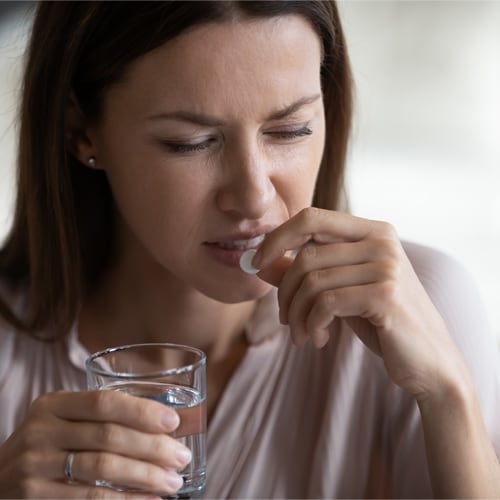Recent episodes of lockdown and self-isolation as a result of the COVID-19 pandemic have led to multiple negative consequences for people's private, social and business life. For some, this has resulted in anxiety and depression, which has led to an increased use of antidepressants. The increased rate of prescription of these medications has been reported worldwide, from Australia to Poland to the United States and can have an impact on the oral health of our patients.
Sedatives, sleeping pills, anti-depressants and anti-psychotics have all seen an increase in use during the pandemic. Increased use of these medications continues, compared to pre-pandemic, and is expected to be the case for some time as the consequences of isolation, fear around transmission of the virus, uncertainty of local or national lock downs and the economic impacts persist.
Mental health has become the single largest issue for which patients seek care from their GP, according to an Australian report, the RACGP’s 2018 Health of the Nation report.
These medications do have oral side-effects; most profoundly, dry mouth. This increases risk for dental caries. Saliva is vital for the protection of our teeth and oral tissues and so a decreased amount of saliva leads to:
- Reduced buffering capacity - saliva helps to maintain a close to neutral intra-oral pH. With reduced salivary flow, it is difficult to combat a decrease in pH caused by acid produced by cariogenic bacteria, and the pH also recovers more slowly
- Reduced washing away of food and debris by saliva means that food containing fermentable carbohydrates, and plaque, remain around the teeth for longer, also impacting caries risk
- Reduced lubrication that can lead to patient discomfort and difficulty tolerating dentures
Dental professionals can conduct a brief screening by questioning their patients on Dry Mouth symptoms and collecting information about their current medications, including medications for anxiety and depression. A caries risk assessment will help determine risk level, and includes assessment for other risk factors.
Once at-risk patients are identified, dentists can then tailor oral hygiene recommendations and preventive care, and also provide a recommendation for relief of dry mouth. Colgate Hydris Mouthwash contains ingredients that lock in hydration of oral tissues. Using humidifiers in the bedroom may also help to reduce night-time dry mouth in drier climates.
Patients should of course be coached on effective oral hygiene routines and habits that may help to relieve dry mouth, which should include:
- Regular brushing twice a day
- Brushing for at least 2 minutes each time
- Changing your toothbrush out regularly
- Using a hydrating mouthwash to relieve dry mouth, like Colgate Hydris Mouthwash
- Using dental floss daily to clean interproximal areas of the teeth
- Drinking enough water during the day to stay hydrated
- Use sugar-free chewing gum or lozenges to help stimulate saliva production
As dental professionals, we should be vigilant during these times to ensure that the effects of the pandemic do not detrimentally affect the oral health of our patients.


Was this article helpful?
If you’d like a response, Contact Us.